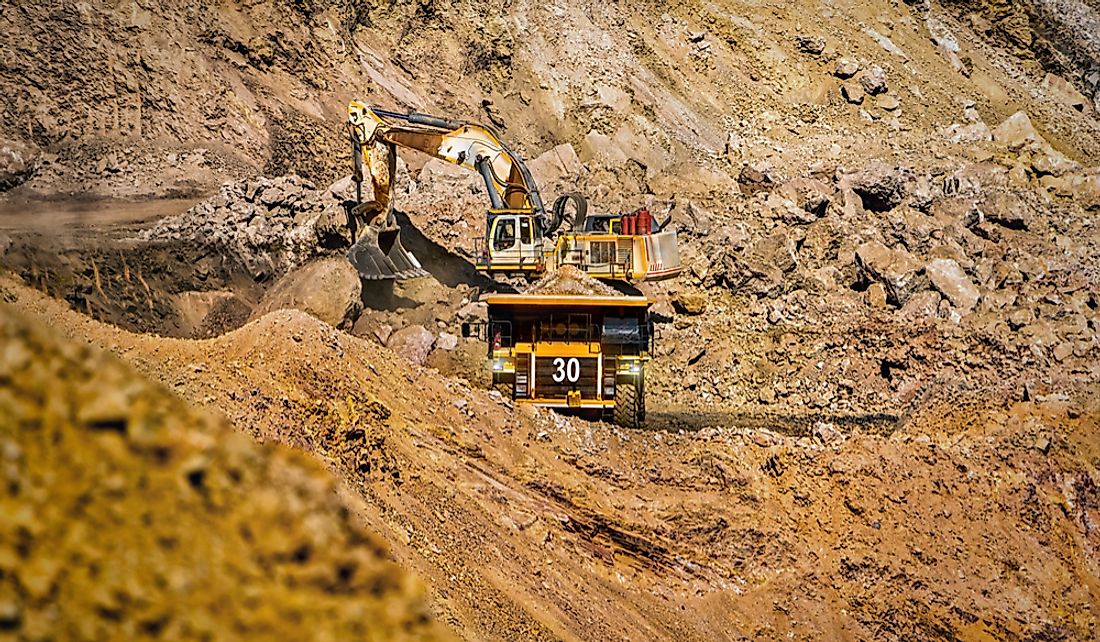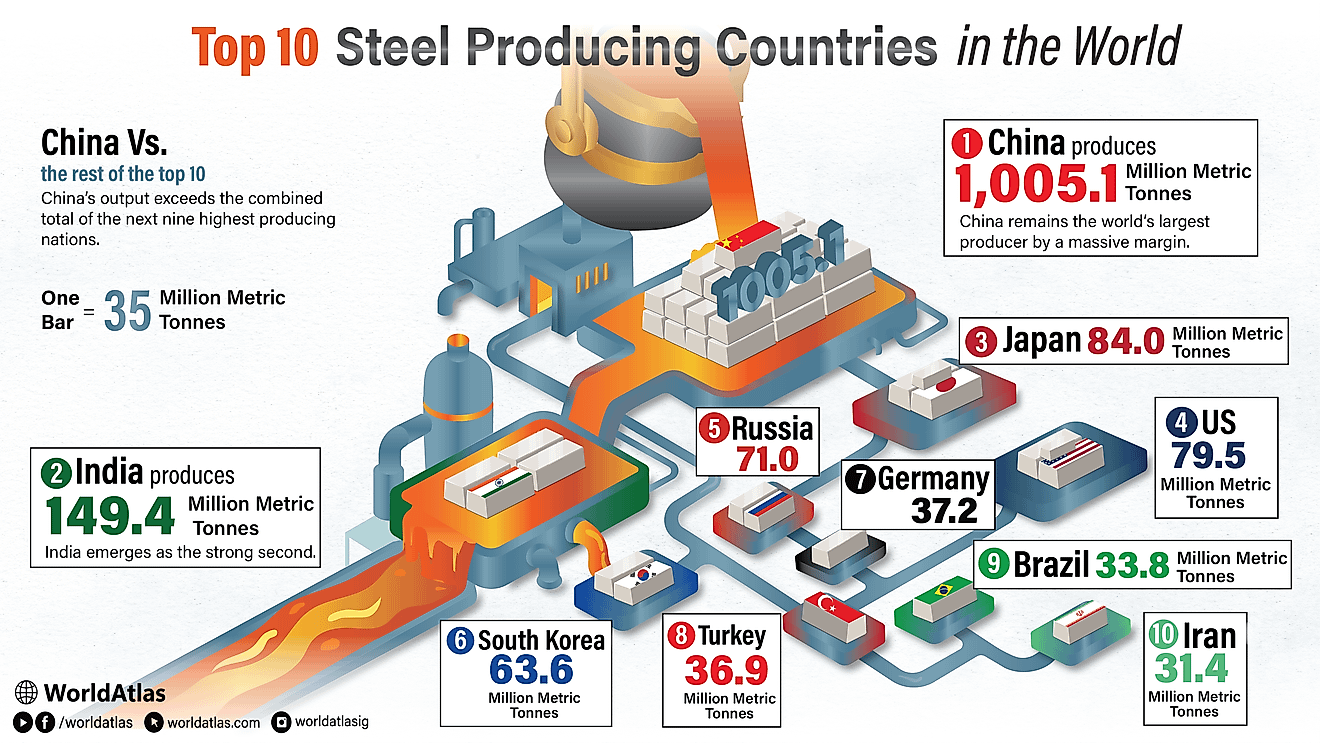What Are The Biggest Industries In Botswana?

Botswana is a country located at the center of Southern Africa. The nation is bordered to the west by Namibia, to the north by Zambia, to the northeast by Zimbabwe, and to the south by South Africa. The country has earned a reputation on prudent macroeconomic management and registering remarkable economic growth. For 35 years, the African nation has transformed from being one of the least developed countries, one with populations that is periodically drought-stricken with a per capita income of $360 to a middle-income country with over half of its population working in informal sectors. Despite the small economy, the nation has managed to pump capital into critical sectors thereby ensuring continued growth. The mineral exploration sector which is anchored by diamond mining coupled with copper-nickel, soda ash, coal, and gold, represent an estimated 34.7% of the economy. Botswana's economic fortunes have been a result of strong performances in the mining sector.
Mining Industry
The country grew at a rate of 9.1% between the year 2000 and 2001. The growth was mainly attributed to the strong performance of the mining sector which witnessed a growth of 19.6% following the expansion of Orapa diamond mine. The relationship shows just how vital the diamond mining industry is in the country. The nation is the largest exporter of diamonds. Diamond mining contributed up to a third of the nation's GDP. Debswana Company is responsible for all diamond mining in the country. The company is a joint undertaking between the De Beers and the government of Botswana. The diamond mining including mining of other minerals and processing employs an estimated 10,000 people. In 2013 the sector contributed 50% of all government revenue. The government expects that the skilled diamond cutting and polishing will survive when the diamond reserves eventually get depleted.
Agriculture
At independence, the country’s agriculture accounted for the largest portion of the GDP. The percentage has dropped since then to a mere 3%. Produce from the sector is consumed locally. However, the production is insufficient because the country has to import food products from South Africa. Despite the low economic contribution to the overall economy, agriculture is practiced by about 80% of the rural population and provides at least 15% of the nation’s formal employment opportunities. Agricultural output is severely limited by adverse climatic conditions. A large part of the country sits in the Kalahari Desert. Corn, sorghum, millet, beans, and groundnuts are the main subsistence crops cultivated. A significant proportion of the sector's contribution to the economy also comes from livestock. Rearing beef cattle generated an estimated $34 million in 2010. Meat produced in the country is exported mainly to the European Union.
Manufacturing
Manufacturing account for 4% of the nation's GDP. A significant portion of the sector is tied to the diamond industry. The sector in its entirety employs about 35,000 people. The sector had witnessed steady growth from 2001 apart from 2007 when the sector experienced a small dip. The dip was attributed to the global financial crisis. The growth in the sector is aided by the nation’s positive ease of doing business rating which places the nation at position 56 out of 185. Manufacturing focuses on processing diamonds, beef, and textiles. Other factors that favor the continued growth of the sector include low corporate tax rate which is just 15%, laws allowing foreign company ownership. The government is increasingly looking to diversify to the manufacturing sector as it looks to explore other sectors apart from diamond mining. Areas that present opportunities for investment include textiles, beverages, food processing, jewelry making, and metal products manufacturing.
Tourism
Tourism and travel account for 6.5% of the GDP in Botswana. The industry contributes 7.6% of employment in the nation including 45,000 direct jobs. The industry is therefore ranked 124th highest in the world based on its contribution to the economy. In 2010, the nation received 2,145,000 tourists mainly from other African countries like South Africa and Zimbabwe. Visitors outside Africa came mainly from the United States and the United Kingdom.
Telecommunications and Internet Services Industry
The telecommunications and internet services industry is fairly underdeveloped. The country has experienced considerable mobile phone penetration in recent years. The sector accounts for an estimated 3% of the nation’s total GDP. The main provider of telecommunication services in the country is the Botswana Telecommunications Corporation Limited (BTC). The company offers fixed-line services to the residential and business markets and also has internet packages. Other notable actors in the industry include Nextcom (which provides telecommunication services), IBIS, and Mega which offer internet services. Mascom Wireless, Bee, and Orange serve the mobile phone market. Growth in the telecommunications sectors was aided by the Telecommunications Act of 1996 which effectively ended the monopoly by BTC and opened doors for other actors. The company later underwent privatization under the BTC Transition Act of 2008. The sector is governed by the Botswana Communications Regulatory Authority, a body that was established by the Communications Authority Act in 2012. The government hopes to further develop the sector through the Maitlamo ICT policy which on implementation is expected to improve access to ICT and internet services by all its citizens. Through the policy, the government also hopes to connect all communities with high-speed networks.
Banking and Financial Industry
The banking and financial industry has risen significantly in the country. The sector witnessed an 11.3% growth between 1995 and 2008, which was nearly double the overall average rate of economic growth. The sector is mainly dominated by Banking and other institutions such as pension funds. Major banks in the nation include Barclays Bank, Capital Bank, Bank of Gaborone, Bank of Baroda, African Banking Corporation, and One Investment Bank.
Challenges to Economic Growth
The nation’s economic growth is greatly impeded by the HIV/AIDS pandemic. The nation has the highest rate of HIV/AIDS infection in the world. The prevalence rate among adults is estimated to be 38.8%. The Botswana government has instituted some measures aimed at lowering the rate of inflection in the country. The nation has one of the best education systems in Africa that continuously churns out young people who often end up jobless. The high unemployment rate means that the nation also has a high poverty incidence. The government has adopted considerable reform measure to diversify the economy from diamond mining to manufacturing to create more employment opportunities.











